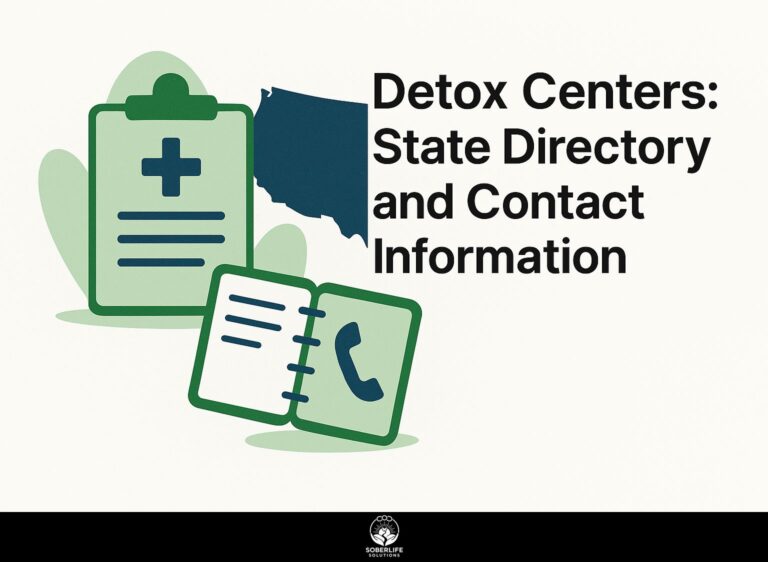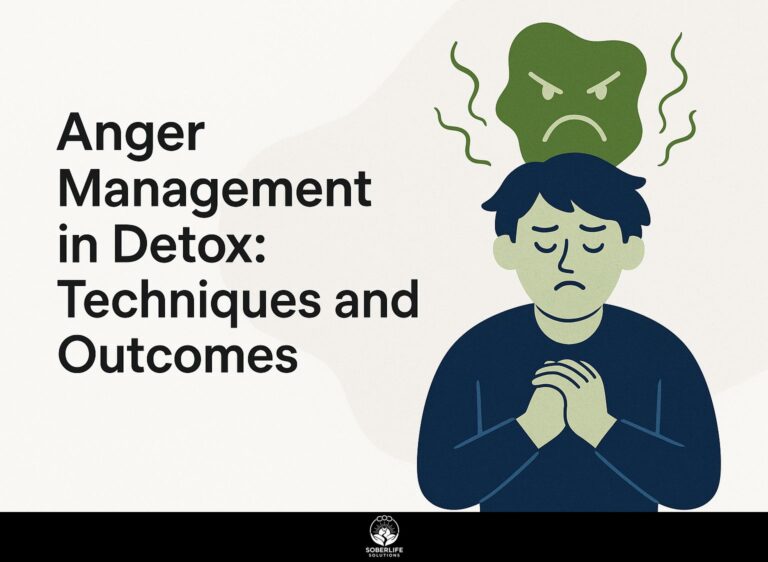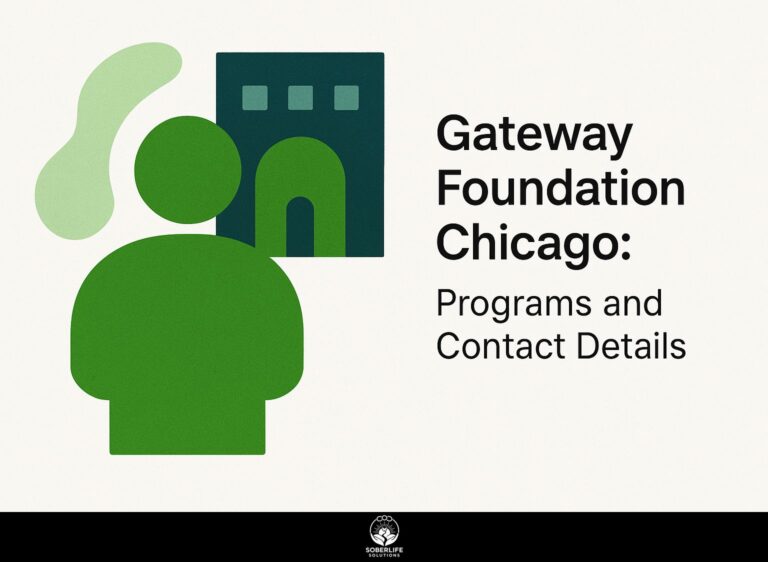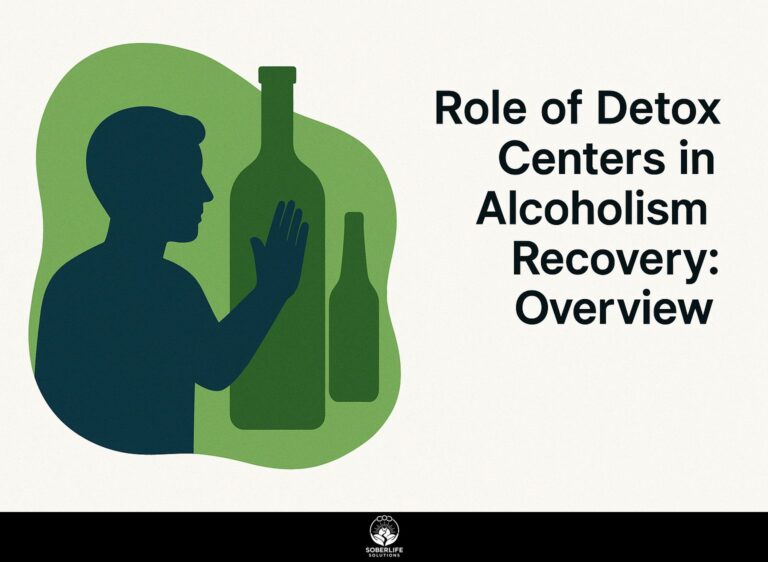Detox Centers: Therapy Options, Benefits, and Services

Detox centers are important in healthcare, providing essential help for mental health recovery. In the Twin Cities, places like Mosaic Therapy Group and Kind Waters Therapy offer different outpatient therapy services suited to what each person needs. This article looks at the different treatment centers, what makes each one special, and the services they provide. Learn how these centers can support your path to health with information from FindTreatment.gov.
Key Takeaways:
Types of Detox Therapies

Detox treatments can be divided into medical treatments and whole-body methods, each designed to meet the different needs of people looking to recover. For context, Healthline provides an in-depth exploration of various full-body detox methods, emphasizing rejuvenation and recovery. To manage these processes effectively, understanding the roles of different services within detox centers (such as case and medication management) is crucial in shaping successful recovery outcomes.
Medical Detox
Medical detox is the process of safely stopping the use of substances, usually under medical supervision, to keep individuals safe and comfortable.
The detox process typically starts with a thorough health assessment and may include protocols like tapering medications or using substitution therapies.
Doctors and addiction experts keep track of important health indicators and handle withdrawal symptoms using drugs like buprenorphine for opioid addiction or benzodiazepines for alcohol withdrawal. This is an approach supported by a publication by the American Family Physician, discussing outpatient detoxification methods.
Psychological assessments are critical, as they help tailor individualized care plans, addressing both physical and mental health needs.
Using established methods such as motivational interviewing can increase patient participation and make a successful recovery more probable.
Holistic Approaches
Approaches to detox focus on combining mind, body, and spirit by using methods like mindfulness exercises and therapy to support overall health.
Common treatments used in detox centers include:
- Yoga
- Meditation
- Guidance on diet
Yoga helps people connect with their bodies, develop focus, and lower stress. Meditation improves control over emotions and increases self-awareness.
Nutritional counseling focuses on building a balanced diet that supports physical and mental health, further aiding in recovery. As highlighted in an article by Healthline, holistic therapy plays a vital role by integrating these practices to enhance emotional strength and overall well-being.
These treatments help with detox and support people by building emotional strength and social bonds, which are essential for lasting personal development during recovery. For a deeper understanding of how yoga contributes to recovery, explore our expert opinion on yoga and art therapy benefits.
Benefits of Detox Programs

Participating in detox programs can greatly improve physical and mental health, laying down a solid base for lasting recovery. For those seeking a comprehensive approach, incorporating nutrition therapy in detox can further enhance the benefits and results of the program.
Physical Health Improvements
Detox programs often result in noticeable physical health benefits, such as more energy and better immune system performance, lowering the chance of long-term illnesses.
In a study published in the Journal of Nutrition, participants reported an average weight loss of 7 pounds over a three-week detox program, with 80% experiencing improved energy levels.
Another study showed that participants had a 20% decrease in inflammation indicators, suggesting that detoxification might help heart health.
Tools like the Nutritional Detox Guide or joining community detox retreats can help these efforts by offering meal plans and expert advice, which strengthen the advantages of detox methods designed for personal health requirements.
Mental Health Benefits
Detox programs help improve mental health by addressing more than just addiction. They help build supportive relationships that are important for overcoming anxiety and depression.
Detox programs usually include counseling sessions, group activities, and natural treatments.
For instance, participants in a 12-step program reported a significant reduction in anxiety symptoms, as shared by one member who found solace in support groups.
Another participant highlighted the effectiveness of mindfulness practices, such as yoga and meditation, introduced during detox.
These methods help with physical recovery and also build a supportive group, allowing people to improve their mental health through shared experiences and emotional bonds.
Services Offered at Detox Centers

Detox centers provide various services, such as counseling, support groups, nutrition plans, and wellness programs, all designed to help people recover. Curious about how these programs contribute to alcoholism recovery? Our overview explains their critical role in supporting individuals on their journey.
Counseling and Support Groups
Counseling sessions and support groups are essential parts of detox services, aiding individuals in building coping skills and increasing their self-esteem during their recovery process.
Detox centers usually provide different counseling choices, like one-on-one meetings, where trained staff give personalized help to deal with particular problems.
Group therapy sessions create a feeling of togetherness, where people can talk about their experiences and feel less alone.
Family therapy is important because it helps fix relationships damaged by addiction, supporting recovery for both the person struggling with addiction and their family members.
These services help with emotional development and create a support system that is important for long-term recovery.
Nutrition and Wellness Programs
Nutrition and wellness programs at detox centers are designed to restore physical health and promote emotional social health, essential for a successful recovery.
These programs usually have custom diet plans that emphasize nutritious foods to help cleanse the body.
For example, clients may follow a meal plan rich in fruits, vegetables, whole grains, and lean proteins, while avoiding processed foods and sugars.
Nutrition specialists often collaborate with fitness trainers to develop exercise routines that support heart health and increase muscle strength. Activities such as yoga and guided walks are popular, promoting both physical health and clear thinking.
Combining good eating habits with physical activity helps people heal and stay healthy over time.
Choosing the Right Detox Center
Picking the right detox center is important for effective treatment. Factors like careful attention and custom programs affect the chance of success.
When looking at choices, check important aspects such as accreditation to confirm the center meets professional standards.
Look for locations offering effective therapies like cognitive-behavioral therapy and methods that focus on the entire person to address different requirements. This approach aligns with the principles outlined in our analysis of how to evaluate rehab and detox centers.
It’s important to look for licensed therapists and medical experts who have experience in helping people recover from addiction.
Success rates are another important metric-aim for centers reporting over 70% positive outcomes.
Check client feedback and aftercare support options, as strong follow-up care can greatly improve chances of long-term recovery.
Frequently Asked Questions
What are some therapy options offered at detox centers?
Detox centers provide different types of treatments, like one-on-one counseling, therapy with others, cognitive behavioral therapy, and activities such as yoga and meditation.
What are the benefits of attending a detox center?
Going to a detox center offers many advantages, such as expert medical care, a secure and encouraging setting, therapy and counseling services, and a planned treatment approach for effective recovery.
Do detox centers offer specialized services for certain substances?
Yes, detox centers often offer specialized services for specific substances, such as alcohol, opioids, or stimulants. These services might offer medications to help with withdrawal symptoms and customized therapy methods.
Are detox centers only for people with serious substance abuse problems?
Detox centers can help people with any level of substance abuse, whether it’s minor or major. They can provide support and guidance for individuals who are looking to make positive changes in their substance use habits.
Can I receive therapy services while in detox?
Yes, detox centers often offer therapy services to address the underlying causes of substance abuse and provide coping mechanisms for maintaining sobriety. These services may include individual and group therapy sessions.
Do detox centers provide aftercare services?
Many detox centers offer aftercare services, which can include continued therapy, support groups, and other resources to help individuals maintain their sobriety and prevent relapse.





